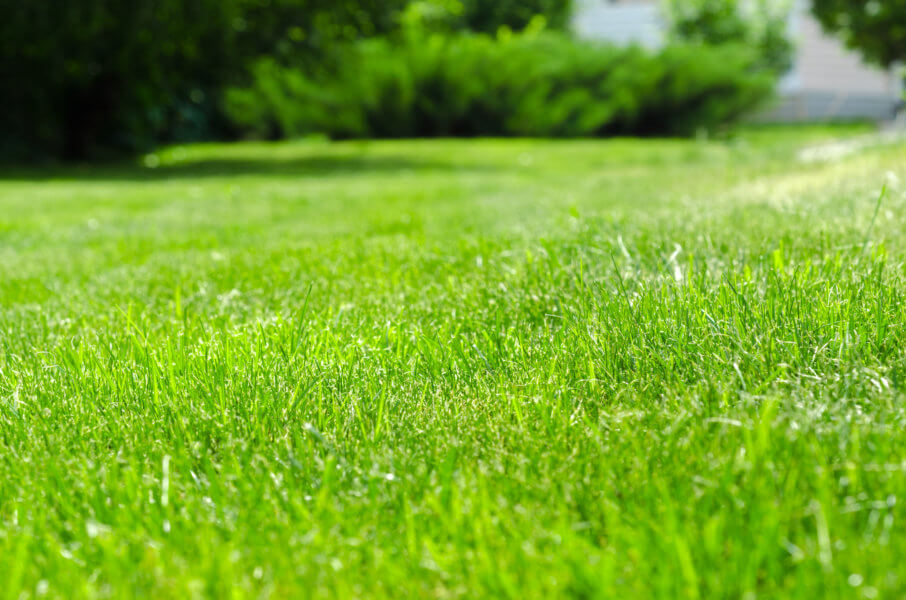
Florida Best Practices From the Start for a Weed-Free Lawn
Adding a lawn to your Florida property is a great way to beautify it and boost its value. However, weed issues can quickly turn your dream lawn into a yard maintenance nightmare. To help prevent this, it is best to give your grass the proper care right from the start so that you can avoid weeds in the first place. Follow these helpful tips to keep your lawn healthy and weed-free over the years.
Choose the Right Florida Type
A healthy yard starts with choosing an appropriate style of grass for the local climate and soil composition. Grasses that aren’t well-suited to Florida’s climate won’t grow as well, resulting in bare patches that enable weeds to thrive. St. Augustine, Zoysia, Bahia and Floratam grasses, to name a few, all grow well here and can help keep weeds at bay.
Be sure to take note of any shade your lawn will receive throughout the day. Only a few grass styles grow well in moderate to heavy shade. Like most plants, grass needs plenty of sunshine in order to thrive, so if you have a shady yard, you’ll need shade-tolerant grass. Otherwise, your grass will be weak and patchy, making it easier for weeds to spring up.
Follow a Healthy Watering Schedule
Grass that is over-watered or under-watered will not be as healthy and robust as a lawn that gets just the right amount of irrigation. When your yard is weakened due to too much or too little water, weeds will have a much easier time taking root. For most grass types, about an inch of water a week is sufficient. Aim to give your lawn all of the necessary water during a single watering each week. Deep watering, as opposed to shallow, more frequent watering, encourages strong root growth, which can help prevent weeds from making their way in.
We get plenty of rain here in Florida, so don’t forget to take that into consideration as well. If there is a lot of rain on the weather forecast, turn off your sprinklers temporarily to avoid over-watering. Be sure to follow any watering restrictions in your local area as well.
Always Mow Your Lawn Regularly, but Not Too Frequently
Depending on your grass type, you’ll need to mow your lawn about once every week or two. If you mow more often than is recommended for your grass variety, it can stress your lawn, making it more susceptible to weeds. At each mowing, don’t take off more than a third of your lawn’s overall height, as more than that can be traumatic for the grass. Also, aim to keep your lawn towards the higher end of its healthy height range. This will create more shade around the base, which can inhibit weed growth.
It is also important to keep your mower and other garden tools clean. Weed clippings and seeds can stick to your mower, especially if the grass was damp. Then, the next time you mow, they can become redistributed throughout your lawn, resulting in even more weeds. If you are dealing with weed issues, take the time to clean your mower blades after each session.
Pull Weeds Quickly
If you do find weeds in your Florida lawn, do your best to remove them as quickly as possible. Take care to pull up the entire root structure of the weed to prevent it from growing back. The longer you let weeds grow in your lawn, the more likely they are to propagate, and the harder they will be to get rid of. Always dispose of or compost weed clippings away from your lawn to prevent recontamination.
Eliminate Common Lawn Pests and Diseases
While you might think that lawn pests and diseases fall under separate categories from weeds, the two can actually be interconnected. When you have pest activity in your lawn, it can weaken the grass, giving weeds the chance to proliferate. Maintaining a healthy lawn is your best defense against weeds, so don’t neglect pest and disease control.
Start Your Florida Yard with Fresh Sod and Proper Care
If you are looking to install a lawn on your Florida property, Duda Sod is here to help. We are proud to offer a wide variety of sod for sale, all of which grows well in our local climate. Reach out to our team today to discuss your options and get the process started.